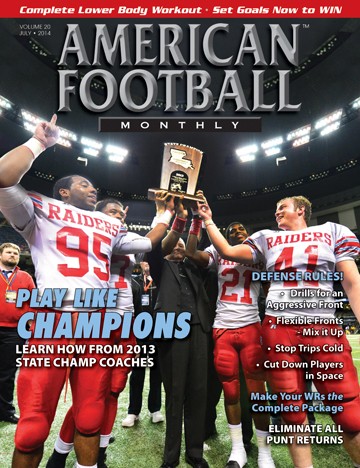AMERICAN FOOTBALL MONTHLY THE #1 RESOURCE FOR FOOTBALL COACHES
Article CategoriesAFM Magazine
|
Carmel High School’s Game Week Preparation Model© More from this issueBy John Hebert, Assistant Coach, Carmel High School (IN) The Carmel defensive system currently in place has many influences. Through external benchmarking visits, (2005-Colerain High School in Cincinnati; 2008- Air Force Academy; 2010- Naval Academy; and 2012 Grand Valley State) we have become committed to a one gap 3-4 scheme based on personnel that is undersized, assignment-oriented, and gritty. Over the last several years our formula has remained the same at its core but is constantly being re-evaluated and revised. Since adopting this system, we have reached the state finals in Indiana’s largest class six out of last eight years. The full article can only be seen by subscribers.
|
|
|||||||
| HOME |
MAGAZINE |
SUBSCRIBE | ONLINE COLUMNISTS | COACHING VIDEOS |
Copyright 2026, AmericanFootballMonthly.com
All Rights Reserved





